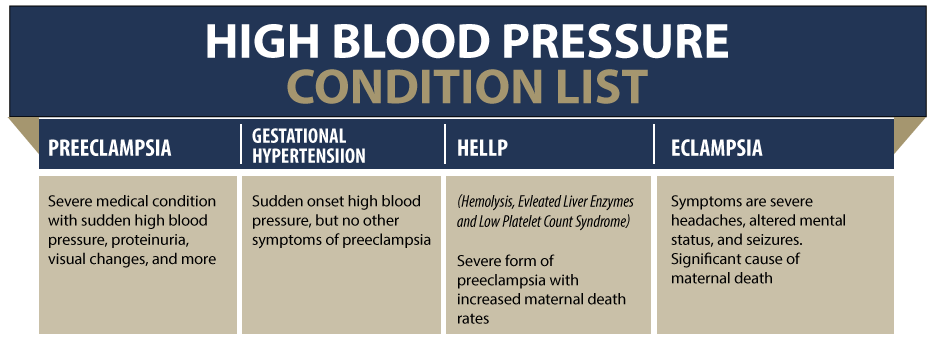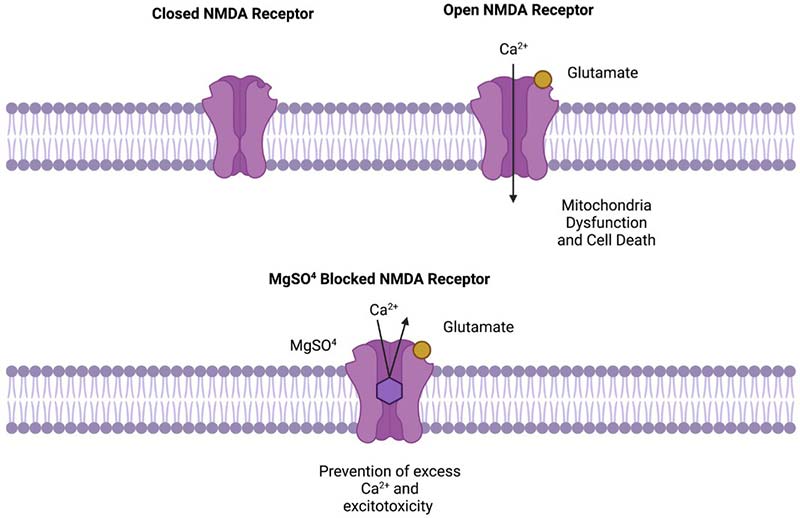Why Is Magnesium Sulfate Given During Pregnancy?
Magnesium sulfate is a treatment or therapy that can be used to delay premature birth and is sometimes prescribed to pregnant women with preeclampsia. Using magnesium sulfate to suppress early labor can give the baby more time to develop in the womb and reduce the risk of complications such as low birth weight, respiratory distress, developmental delays and an increased risk of long-term health issues like cerebral palsy (CP) and neonatal hypoxic-ischemic encephalopathy (HIE).

Pregnant women with preeclampsia may be prescribed magnesium sulfate to help prevent seizures, reduce high blood pressure, and prevent adverse outcomes for both the mother and the baby by improving blood flow to the placenta. It is crucial for healthcare providers to closely monitor pregnant women receiving magnesium sulfate and ensure the correct dosage is administered.
Birth Injury Lawyers
1-888-987-0005The birth injury attorneys at Miller Weisbrod Olesky are dedicated to providing compassionate legal support to families and their children living with a brain injury or birth injury, such as cerebral palsy.
Negligence or improper use of magnesium sulfate can lead to severe birth complications, such as magnesium toxicity, respiratory depression, cardiac arrhythmias, and even maternal or fetal death. When a medical professional fails to properly administer or monitor the dosage of magnesium sulfate, and it results in harm to a pregnant mother, her infant, or both. Legal action may be taken against the responsible healthcare provider for medical malpractice.
If you suspect that medical negligence related to the administration or monitoring of magnesium sulfate has resulted in birth injuries to you or your newborn, a compassionate and experienced medical birth injury malpractice attorney can evaluate your case and inform you of your legal options. At Miller Weisbrod Olesky, our team of dedicated birth injury lawyers, registered nurses, and nurse-attorneys understand the complexities of these cases. We will work diligently to gather evidence, consult with medical experts, and fight for the compensation you and your child deserve.
What is Magnesium Sulfate?
Magnesium sulfate is an inorganic salt that contains magnesium, sulfur, and oxygen. This treatment can be used as any of the following:
- Anticonvulsant: Seizure prevention
- Cardiovascular drug: Heart arrhythmia treatments
- Calcium channel blocker: Used to lower blood pressure
- Anaesthetic: Sensory response suppressant
- Tocolytic agent: Muscle contraction inhibitor
- Anti-arrhythmia drug: Prevention of irregular heart beat
- Analgesic: Anti-inflammatory

Medical professionals use magnesium sulfate for a variety of purposes, including preventing seizures in pregnant women with severe preeclampsia, slowing or stopping preterm labor, and reducing the baby's risk of preterm birth associated brain damage such as cerebral palsy, hypoxic-ischemic encephalopathy (HIE), periventricular leukomalacia (PVL) and seizure disorders. Studies suggest that at risk infants who receive magnesium sulfate in utero are 32% less likely to develop cerebral palsy and 39% less likely to suffer from severe motor impairments.
When magnesium sulfate is administered by a healthcare professional during the period before childbirth (antepartum or antenatal), it can prevent or delay preterm birth for several days. Delaying preterm birth gives medical professionals the opportunity to administer antenatal steroids like Betamethasone, which can lessen the risk of birth injuries. The use of prenatal steroids such as Betamethasone can act as a neuroprotector and help the baby's lungs mature in preparation for life outside the womb.
Magnesium sulfate treatment is administered intravenously, at an initial dose of 4 to 6 grams, over a span of approximately 15 to 30 minutes. A maintenance dose is subsequently given at 2 to 3 grams every hour but for no longer than 7 days. It typically takes effect immediately and is given until about 24 hours after delivery of the baby. Pregnant women receiving magnesium sulfate require hospitalization, and the medical team must take care to monitor the patient constantly.
Magnesium Sulfate Treatment for Preeclampsia
Preeclampsia is a complication that can occur any time after 20 weeks of pregnancy. Although most preeclampsia cases start after the 34th week of pregnancy, if it is diagnosed before week 32, it is considered early-onset preeclampsia, and the risk of significant injury or death without treatment is significant. This condition is characterized by high blood pressure and dysfunction of certain organs, such as the liver and kidneys.
A possible sign of preeclampsia is excess protein in the urine. During routine care examinations, it is essential for healthcare providers to regularly monitor blood pressure levels in pregnant women and use special urine test strips to check for the presence of protein.

Additional signs and symptoms of preeclampsia include:
- Intense headaches
- Nausea or vomiting
- Vision problems
- Pain in the upper abdomen, shoulders, or lower back
- Swelling or sudden weight gain, typically in the hands or feet
- Difficulty breathing due to buildup of fluid in the lungs
The exact cause of preeclampsia is unknown; however, problems with the new blood vessels that form between the placenta and uterine wall during the early stages of pregnancy are thought to be responsible. These abnormal blood vessels restrict blood flow to the placenta, which can, in turn, increase a pregnant woman's blood pressure.

This abnormal development of these blood vessels can be caused by several factors, such as:
- A lack of blood flow to the uterus
- Damage to the blood vessels
- Issues with the immune system
- Genetic factors
Preeclampsia poses the risk of significant complications for both the mother and her unborn child. When left untreated, preeclampsia can lead to eclampsia, which can cause neurological complications, seizures, coma, and even death to an expectant mother. Considering this condition involves problems with the placenta, the recommended treatment is delivery of the baby and the placenta. Because the fetus requires time to develop, timing can be a challenge.
Magnesium sulfate may be prescribed for preeclampsia to help decrease the risk of seizures and prolong a pregnancy for up to two days. In cases of preeclampsia, prolonging pregnancy with the use of magnesium sulfate can allow for additional time for the fetus to develop and mature before delivery. Allowing for additional time for the fetus to develop reduces the risk of complications associated with premature birth and ensures a better outcome for both the mother and the baby.
How Can Magnesium Sulfate Prevent or Delay Preterm Birth?
Preterm labor occurs when the uterus muscles start contracting, resulting in the cervix opening earlier than expected. Babies that are born before 37 weeks of pregnancy are at higher risk of birth injuries, such as hypoxic-ischemic encephalopathy (HIE) and cerebral palsy, due to their underdeveloped organs and general fragility. Certain interventions can prevent or delay premature birth when a mother is at an increased risk of delivering early.
The use of magnesium sulfate, for example, is one such intervention that works as a tocolytic medication to suppress uterine contractions and delay premature delivery. Magnesium sulfate can help slow contractions by reducing the calcium levels in the uterus muscles. Because calcium is needed for muscles to contract, this treatment can promote muscle relaxation.
It is essential to remember, however, that magnesium sulfate cannot prevent labor from happening and will only slow it down for a few days. Delaying preterm labor using magnesium sulfate gives medical professionals a crucial window of opportunity to administer antenatal corticosteroids like Betamethasone, which can help accelerate the development of the baby's lungs and prepare them for life outside the uterus. Betamethasone also acts as a neuroprotector, reducing the risk of brain damage and other long-term neurological complications in preterm babies.

How Does Magnesium Sulfate Protect an Infant's Brain?
The mechanisms by which magnesium sulfate protects a preterm baby remain a matter of study. However, professionals hypothesize that proper and timely administration of magnesium salt can promote blood flow in the brain tissues (hemodynamic stability), thereby preventing nerve cell damage in the brain (neuronal excitotoxicity injury). The anti-inflammatory and anti-oxidative properties of magnesium sulfate also work to protect brain tissue from neural injury.

It has been hypothesized that in-utero administration of magnesium sulfate may provide the following benefits:
- Control blood pressure and improve cerebral blood flow
- Stabilize neuronal membranes
- Reduce excitotoxicity (A condition in which nerve cells are damaged due to overactive neural receptors)
- Mitigate the risk of oxidative injury by protecting the brain cells
- Decrease the level of inflammatory or antioxidant molecules in the brain
When neuroprotective agents like magnesium sulfate are administered before birth, the incidence and severity of birth injuries like HIE and cerebral palsy are significantly reduced. Magnesium sulfate has also been shown to reduce the risk of periventricular leukomalacia (damage to the white matter of the brain) and intraventricular hemorrhage (bleeding in or around the spaces in the brain that contain cerebrospinal fluid).
What are Side Effects of Magnesium Sulfate Treatment?
During pregnancy, magnesium sulfate is often used to delay premature labor or treat conditions like preeclampsia. Although it can be an effective treatment and is generally considered safe when administered under proper medical supervision, it is essential to be aware of possible side effects.
For example, taking too much magnesium (magnesium overdose) can be life-threatening for both a pregnant woman and her newborn. If the body has absorbed too much magnesium, a person may begin to experience lethargy, have an irregular heartbeat, or be unable to completely empty their bladder. Magnesium toxicity in infants can cause poor muscle control, low bone density, and a higher risk for bone fractures.

The following are the most common maternal side effects of magnesium sulfate:
- Sweating
- Nausea or vomiting
- Large drops in blood pressure
- Slow or irregular heart rate
- Muscle weakness
- Excessive sleeping (hypersomnolence)
- Respiratory arrest (loss of breathing)
- Deficiencies in minerals other than magnesium, like calcium
- Confusion or fogginess
- Loss of reflexes
- Coma
- Heart attack
- Chest tightness
- Changes in vision or blurred vision
- Kidney damage
- Dry mouth
- Effects on the central nervous system
While side effects are very uncommon when physicians are skilled and careful with magnesium administration, adverse events may occur due to unfamiliarity with safe dose ranges, inadequate patient monitoring, and wrong administration techniques. In cases where a doctor or other healthcare provider fails to properly administer and/or monitor magnesium sulfate treatment and results in complications, it may be considered medical malpractice.
If you suspect that you or your loved one was the victim of medical negligence, we encourage you to contact our skilled birth injury lawyers, who can guide you through the process of seeking justice and fair compensation.
Who Should Receive Magnesium Sulfate Treatment?
Physicians should administer magnesium sulfate to women who are at risk of imminent preterm labor. When preterm delivery is indicated, it is recommended that the expectant mother receive a 1-gram dose every hour until the baby is born. Magnesium sulfate therapy should also be used to prevent seizures in pregnant women with preeclampsia.

Additionally, because the recommended treatment for preeclampsia is delivery of the baby and placenta, a doctor may prescribe magnesium sulfate to speed up the baby's lung development and avoid serious complications associated with premature birth. This treatment is also advisable for women suffering from preterm premature rupture of membranes (PPROM) and preterm labor without membrane rupture.
When is Magnesium Sulfate Treatment Not Recommended?
In most pregnant women, magnesium sulfate administration is known to be safe. In some circumstances, however, magnesium sulfate treatment should be avoided.
Magnesium therapy is not advised if a pregnant mother has any of the following conditions:
- Muscular Dystrophy
- Myasthenia Gravis (a neuromuscular disorder)
- Compromised heart function or cardiac conduction defects
- Impaired kidney function (since the kidneys are responsible for removing magnesium from the body)
- Any other medical condition that becomes worse when taking magnesium sulfate
To prevent magnesium toxicity, it is imperative that doctors closely monitor urine output, deep tendon reflexes, and magnesium levels in the blood. If the patient's breathing rate exceeds 12 breaths per minute, a patellar (knee) reflex is present, or urine output exceeds 100 mL in four hours, the maintenance phase of care should be continued. Doctors have a responsibility to look out for common signs of magnesium toxicity to prevent a pregnant mother from experiencing complications such as respiratory depression, low blood pressure, and cardiac arrest.
Magnesium Sulfate Therapy and Medical Negligence
Magnesium sulfate therapy can be a beneficial treatment for pregnant women who are at risk of preterm labor or have preeclampsia. If a doctor does not know how to administer magnesium sulfate properly, they may make the following mistakes.

- Administering an incorrect dosage
- Ignoring or misdiagnosing signs of magnesium toxicity
- Failing to monitor the patient adequately
- Preparing the drug incorrectly
- Using the incorrect administration technique
If any of these mistakes lead to adverse outcomes, such as harm to the mother or the baby, it may be considered medical negligence or malpractice. In the event that you or your baby suffered birth complications due to the improper use of magnesium sulfate by a medical professional, a medical malpractice attorney can help you determine if you have a valid claim and ensure all responsible parties are held accountable for their actions.
Leading Causes of Birth Injury Malpractice
When doctors, nurses, or other healthcare professionals commit medical negligence before, during, or after delivery, it can result in injuries to a mother, her child, or both. Even though not every birth injury is caused by medical malpractice, an experienced birth injury attorney can help make sure your child is compensated fairly if their provider was negligent in their care.

There are several examples of acts of medical negligence that can cause birth injuries during childbirth:
- Failure to recognize and treat signs of maternal or fetal distress, such as lack of oxygen
- Improper use of forceps or a vacuum extractor
- Using too much force during delivery
- Failure to schedule an emergency cesarean section (C-section)
- Delaying in performing an emergency C-section
- Failure to properly monitor the mother during her pregnancy
- Failure to administer the proper antibiotics or administering the wrong antibiotics to a mother with an STD or other maternal infections before delivery
- Ignoring or misreading a fetal monitoring strip
- Failure to detect and treat an umbilical cord complication
- Failure to diagnose and treat preterm labor in a timely manner
- Failure to treat maternal elevated blood pressure (preeclampsia)
- Failure to properly resuscitate a newborn after delivery
- Failure to treat jaundice and kernicterus
- Failure to respond to signs of a placental abruption
- Failure to detect a severe birth defect on a prenatal ultrasound
- Failure to carefully manage an abnormal fetal position
- Administering too high a dose of labor-inducing medications like Pitocin
Failing to address complications such as a preterm delivery or umbilical cord issues can result in a serious birth injury. As leaders in our communities, we rely on medical professionals to provide high-quality health care. Generally, when people think of medical malpractice liability, they picture doctors and nurses. However, other parties involved in the care of a pregnant woman and her baby may also be held responsible in a birth injury lawsuit.

Medical negligence may be committed by one or more of the following types of medical providers or facilities:
- Obstetricians (OB-GYN)
- Other obstetric professionals
- Pediatricians, including pediatric neurologists
- Anesthesiologists
- Labor and delivery nurses
- Midwives
- Nurses
- Hospitals and medical facilities
- Hospital administrators
- Other hospital staff
- Neonatal nurses and aids
- Neonatologists or pediatricians providing neonatal care
- Respiratory therapists
- Maternal-fetal medicine physicians and specialists (MFM)
- Laboratory staff
Although medical malpractice suits are often filed against healthcare providers like doctors and nurses, hospitals can also be held liable in certain circumstances. A hospital can be vicariously liable for an employee's negligent actions that caused harm during work hours or while the employee was performing a job-related task. For example, if an OBGYN makes a negligent mistake during pregnancy or delivery, the hospital can be held vicariously liable.
A hospital may also be held directly liable for its own actions. For instance, a hospital failing to adhere to medical protocols and standards may be directly liable for a patient's injuries. We can help you determine whether your child's birth injury was caused by a doctor, the hospital itself, or another medical professional.
When you file a birth injury malpractice claim, your lawyer must be prepared to present evidence that proves that a doctor's or hospital's negligence caused your child's birth injury. An injured plaintiff must be able to prove each of the following four legal elements in their birth injury lawsuit.
- Duty of care: Before the provider will have a duty of care, the plaintiff must be able to establish a provider-patient relationship. Upon establishing this relationship, the medical provider is expected to meet a relevant standard of care that a medical professional with the same specialization would have exercised under the same conditions.
- Breach: The next element the plaintiff must prove is that the healthcare provider or facility breached that duty by failing to meet the applicable standard of care.
- Causation: The plaintiff must then demonstrate that the healthcare provider's negligent care directly caused their or their child's injuries.
- Damages: Finally, the plaintiff must show that the harm they or their child suffered resulted in specific expenses and other losses. These losses may include anything from the cost of lifelong medical care to emotional suffering.
The plaintiff's attorney must present compelling evidence to establish liability and recover damages in birth injury cases. At Miller Weisbrod Olesky, our birth injury lawyers can collect evidence on your behalf, consult with medical experts to determine the cause of the injury, and identify all medical professionals who contributed to you or your child's birth injury.
Filing a Birth Injury Malpractice Lawsuit

Parents may file a birth injury lawsuit on behalf of their child against negligent medical professionals responsible for causing their child to sustain a preventable birth injury. Families may seek compensation to cover their child's medical and treatment costs through a Birth Injury Malpractice lawsuit.
It is important to note that while every case is different, most lawsuits typically follow a similar process. If your child was injured by a doctor, nurse, or other healthcare provider, an experienced birth injury lawyer can file your case, gather evidence, and pursue full and fair compensation on your behalf.
Free Case Review
Our dedicated birth injury lawyers will determine if you are eligible to file a birth injury lawsuit during your complimentary case review, which you can schedule by contacting us via our toll-free line at 888-987-0005 or by filling out our convenient online form. If we can determine that medical malpractice may have played a role in your child's birth injury, your case will likely be accepted by our team.
Gather Evidence
A birth injury malpractice attorney will gather information and evidence related to your case as soon as they determine you qualify to pursue a lawsuit. Evidence like medical records, witness statements, and the employment history of the medical professional in your case are crucial to proving that your child's birth injury was caused by medical negligence.
File the Lawsuit
After gathering the necessary information, your attorney will file your lawsuit in the appropriate court. As soon as the case is filed, you and your family will become the plaintiffs (the party taking legal action). The healthcare professionals who may be responsible for causing your child's injury will become the defendants (the party being sued). The statute of limitations in each state governs the deadline for filing a birth injury lawsuit.
Your lawyer will ensure your case is filed on time according to your state's statute of limitations. The lawsuit outlines the charges against the defendants and gives them around 30 days to respond. If the defendants fail to respond, judgment will automatically be entered in the plaintiff's favor. In the event the defendants respond but fail to assume responsibility, they will explain why they believe they are not to blame for your child's injury.
Discovery
Your attorney will gather more evidence, such as medical records, medical expense reports, and other documents related to your case, once the defendants file their response. During this time, you, your loved ones, and medical experts may be required to give statements under oath. The parties will also exchange information and evidence relevant to their respective cases to build strong arguments. To prove that medical professionals failed to uphold a high standard of care, an experienced attorney will collect all legally required evidence.
Settlement Negotiations
Settlement negotiations can begin once both parties have prepared their cases. During this phase, both parties will try to reach an agreement (settlement) that allows them to resolve their dispute without going through a full trial. Should a settlement be reached, the defendants will pay you a lump sum, and all legal action will stop. If the case cannot be resolved during this stage, our lawyers have the experience and knowledge to represent your best interests in court.
Go Through a Trial
Cases that do not settle through settlement negotiations will go to trial. A jury and judge will examine all the evidence presented by both legal teams during the trial. A verdict is reached after each party has presented their case and a judgment has been entered. The losing party may decide to appeal the decision in some cases. The disadvantage of trials is that, while you might receive more compensation than you would receive from a settlement, you risk receiving no compensation at all if you lose. Our lawyers can help you obtain the compensation you need to cover the cost of your child's care and other injury-related expenses.
Birth Injury Malpractice Statute of Limitations

A statute of limitations is a law that imposes a deadline for filing birth injury lawsuits. If you fail to file a claim before the statute of limitations "runs out", you may lose your right to pursue legal action and seek compensation. In some cases where an injury may not be immediately apparent, the statute of limitations may be extended.
The discovery rule prevents the statute of limitations from running until the injury is discovered or reasonably should have been discovered. It is also important to remember that the statute of limitations varies by state and the type of claim you're filing. A birth injury attorney can help you avoid missing all crucial deadlines related to your case.
Did Your Baby Suffer an Injury From Complications at Birth?
Contact Our Experienced Birth Injury Lawyers Today!

Physicians have a duty to thoroughly understand the proper administration of magnesium sulfate, including the appropriate dosage, potential side effects, and the risks involved to ensure the safety and well-being of a mother and her newborn. The birth injury lawyers at Miller Weisbrod Olesky can help you determine if your child's birth injury was the result of magnesium sulfate treatment errors by reviewing your case, gathering relevant evidence, and consulting with medical experts.
We have helped countless victims of medical malpractice and their families hold negligent healthcare professionals accountable and recover the compensation they deserve to pay for their child's care. Our history of successful verdicts and settlements speaks for itself. Schedule your free, confidential case review today by calling our toll-free line at 888-987-0005 or completing our convenient online form.
